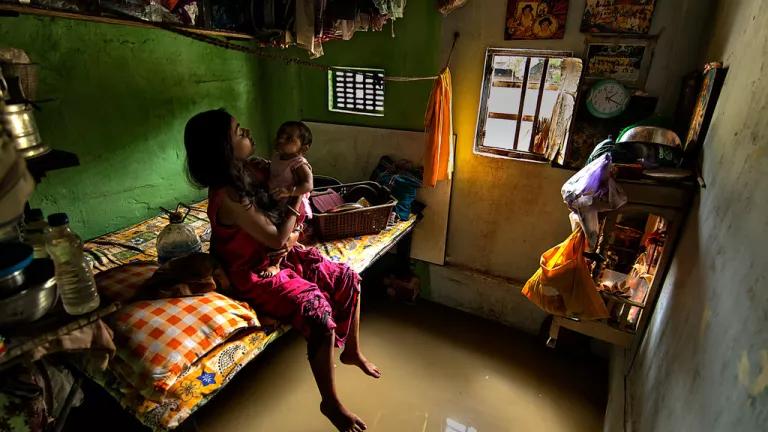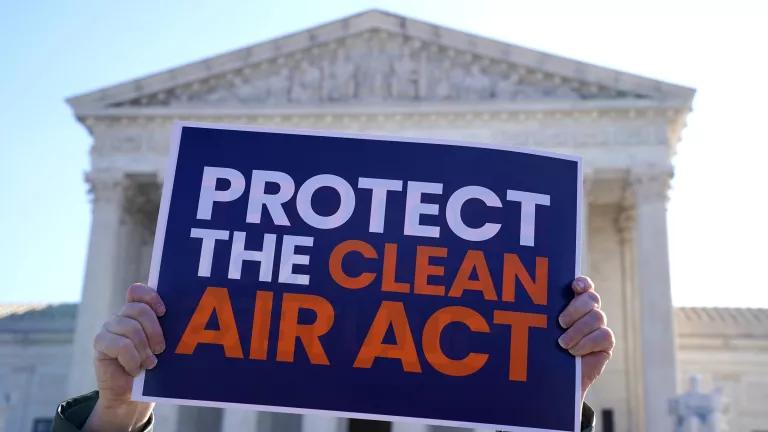Climate Hazards Harm Workers. Health Professionals Can Help
Healthcare professionals can address the climate hazards faced by workers in three ways: educating professionals across all health sectors on occupation-related climate issues, identifying climate-related injury and illness trends in worker populations, and advocating for climate programs and policies that protect workers.

Nurse prepping personal protective equipment (2021)
Co-authored by Prasanna Vankina (University of Minnesota Medical School)
Climate change is a pressing and costly public health crisis. At the frontlines are workers who must confront a dramatically changing work environment where workplace hazards are worsening and evolving. These include outdoor workers in California confronting high levels of smoke, farmworkers in Texas facing heat exhaustion, and workers in New York suffering from mold or dust exposure during storm disaster cleanups.
How can we protect them? As the saying goes, “it takes a village.” We need many stakeholders, including health professionals—who are important role models for society—to understand, address, and advocate for workplace health and safety. Healthcare professionals can address the climate hazards faced by workers in three ways: educating professionals across all health sectors on occupation-related climate issues, identifying climate-related injury and illness trends in worker populations, and advocating for climate programs and policies that protect workers.
Healthcare professionals across all specialties can play a key role
The idea that health professionals must play a proactive role in understanding climate change and addressing its urgent and disproportionate impacts on various communities is not new. However, progress has been slow. Both in healthcare and in the larger public dialogue, current discussions around individual and public health often overlook workers as a population that is notably impacted by climate change.
Healthcare professionals are already seeing patients with conditions related to climate change. It is important that all health professions recognize the climate-related hazards faced by workers. Although occupational medicine and infectious disease specialists may recognize climate-related harms to workers, individuals with lower income generally face larger financial barriers to specialty care. This is especially true for those in precarious work, who get most of their care through emergency departments or primary care practitioners at community health centers. A climate equity approach to worker health and safety should be the norm rather than the exception across all medical specialties.
To ensure all healthcare professionals are fully prepared to address the climate hazards faced by workers, medical education should also establish and enhance initial and continuous climate health equity education that also prioritizes occupation-related illnesses.

Doctors participating in a climate march in New York (2014)
Spotting the trends and understanding the big picture of climate hazards at work
Healthcare professionals are uniquely positioned to identify emerging trends in climate-related health concerns. In fact, physicians across the United States have already begun to highlight the increased number of cardiac arrest cases during heat waves, asthma due to air pollution, and other climate-related health effects. Unfortunately, the full extent to which workers are impacted by climate hazards is unknown, given the relative lack of standardized data about work-related illness and injury in relation to climate health. Furthermore, many hospitals and healthcare facilities still do not ask their patients about, or collect information regarding their occupations.
Incorporating occupational history would require a change in health record guidelines—a move advocated for by a number of physician groups. Improving collection of occupational data for patients would give healthcare providers and hospitals the tools to spot emerging trends in workplace health. As we grapple with the most significant global health threat of our time, it is essential for healthcare professionals to actively integrate workplace climate hazards into their patient interviews and data analysis to better understand the far-reaching nature of the problem.

Medical professional administering COVID-19 Vaccine in Des Moines, Iowa (2021)
Health professionals are trusted messengers on climate change impacts and solutions
Clinicians rank among the top U.S. professions in terms of honesty and ethical standards. This stature provides an opportunity for healthcare organizations and professionals to amplify effective responses to the climate-related hazards workers face. Healthcare is a major backbone of the U.S. economy. From providing essential care during the height of the pandemic to engaging in vaccine roll out campaigns—healthcare professionals have been vital in advancing public health goals. In many communities, both rural and urban, healthcare systems are the largest employers. This dynamic enables those employed in the sector to cast a wide net of engagement throughout their communities—both at work and at home.
There are many opportunities for healthcare organizations to share resources, tools, and communication frameworks on climate change and its impacts with various worker groups. This includes educating employees within the healthcare system on climate hazards they may face at work, developing partnerships with local community-based organizations and labor unions, developing geographically appropriate workplace safety programs, and advocating for and supporting policies that protect workers from climate hazards.

Army medical professional providing educational material to patient (2011)
With the right tools through education, advocacy, research, and public policy, the healthcare sector is poised to provide more proactive climate and health support to workers.


